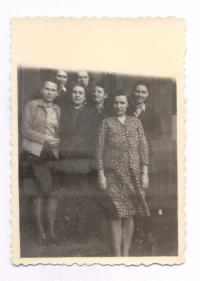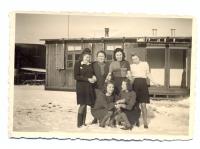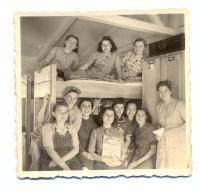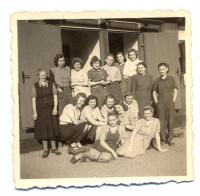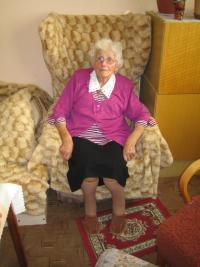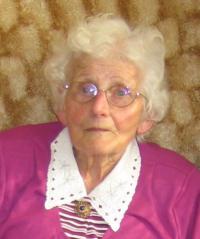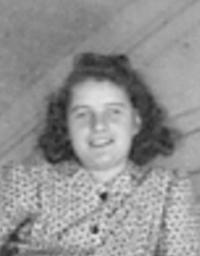While in Germany we formed a choir and we sang Czech songs to an auditorium full of Germans

Stáhnout obrázek
Mrs. Věra Moníková, née Vozounová, was born in 1923 in Hradec Králové. She learnt the seamstress‘s trade and she worked in the company Triola in Hradec. In 1942 she was sent to do forced labour in the Silesian town Neusalz (present-day Nowa Sól in Poland). She worked in a textile factory which manufactured pig brushes. Apart from her work she was also earning some money as a seamstress working for local German women. While in Neusalz she was singing in a Czech choir. After a year of working in the factory she had to start working on digging entrenchment near Neusalz. During cutting of branches she seriously injured her hand, but fortunately she was saved by French doctors. She returned to Czechoslovakia in 1944 due to her mother‘s illness. In 1945 she married her friend Josef, who had likewise spent part of the war doing forced labour. After the war she found a job in the textile industry.
